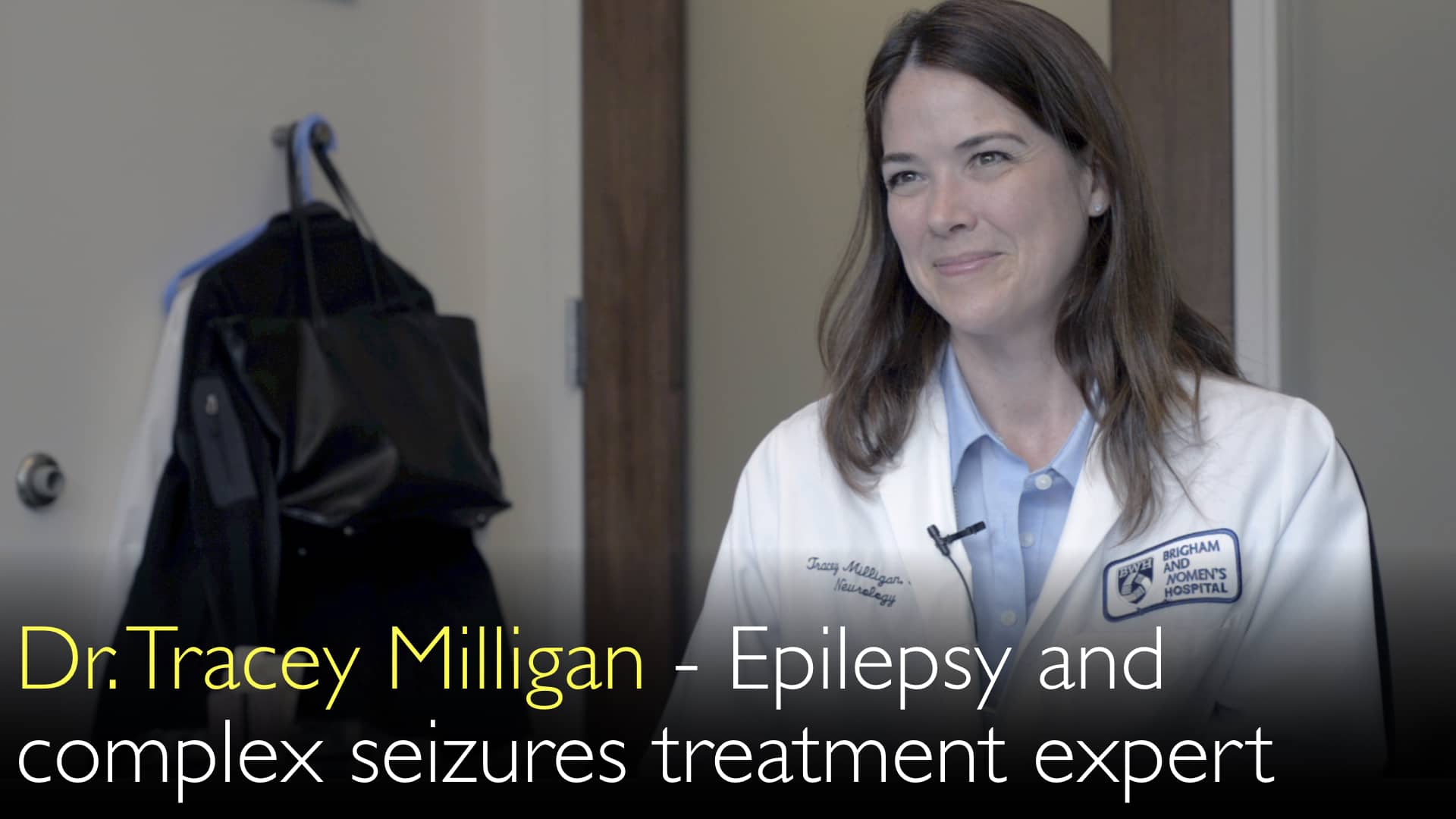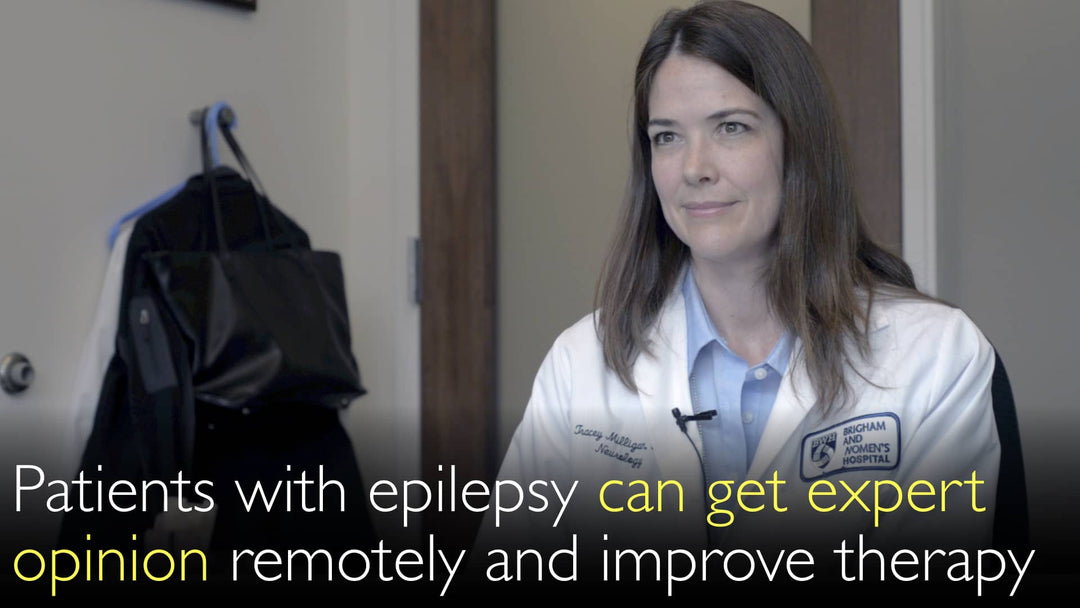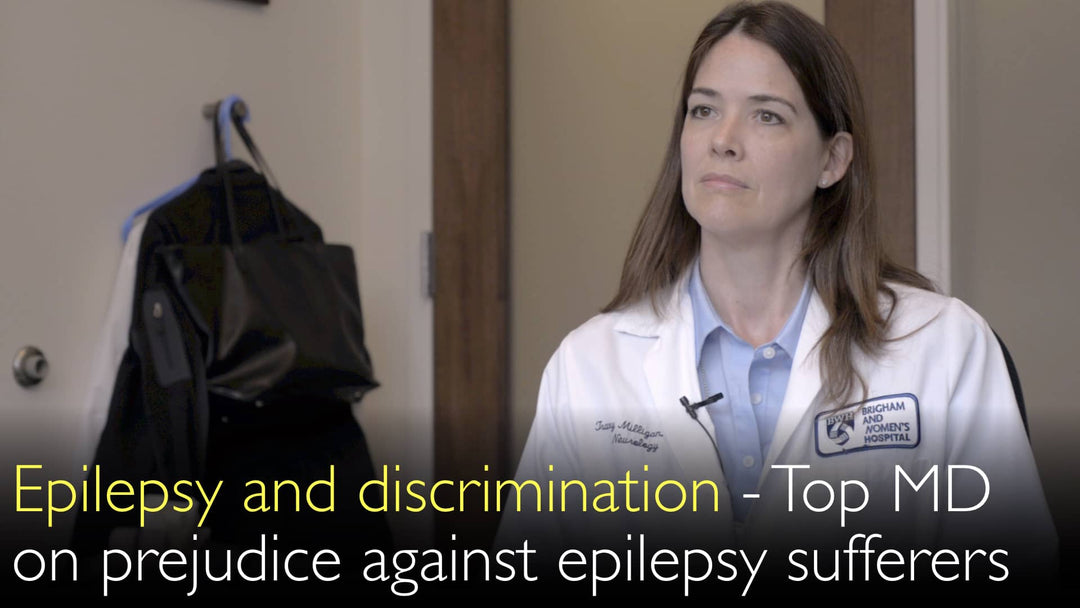Anton Titov 박사(MD)가 이러한 치료 전략에 대해 심층적으로 인터뷰합니다.
발작 조절을 위한 적절한 항간질약 선택
섹션 바로가기
- 간질 치료 목표: 발작 없음, 부작용 없음
- 약물 선택에서 발작 유형의 중요성
- 신형 vs 구형 항간질약
- 전신성 간질 치료제와 광범위 스펙트럼 옵션
- 전문가 진단과 뇌파 해석의 필요성
- 전체 대본
간질 치료 목표: 발작 없음, 부작용 없음
간질 치료의 주요 목표는 약물 부작용 없이 발작을 완전히 조절하는 것입니다. 트레이시 밀리건 박사는 이를 "발작 없음, 부작용 없음"으로 요약합니다. 이 원칙은 신경과 전문의가 치료 방식을 선택할 때 모든 결정의 기준이 됩니다. 이러한 균형을 이루는 것은 효과적인 장기적 간질 치료와 환자의 삶의 질 향상을 위한 핵심 요소입니다.
약물 선택에서 발작 유형의 중요성
적절한 항간질약 선택은 환자의 특정 간질 유형에 전적으로 달려 있습니다. 트레이시 밀리건 박사는 의사들이 발작이 초점성인지 전신성인지에 따라 약물을 선택한다고 설명합니다. 초점성 간질 발작은 뇌의 특정 부위에서 시작되며, 전신성 발작은 양측 뇌 네트워크가 동시에 관여합니다. 일부 약물은 두 유형 모두에 효과적인데, 이를 광범위 스펙트럼 항간질약이라고 합니다.
신형 vs 구형 항간질약
신형 항간질약은 일반적으로 부작용 측면에서 상당한 이점을 제공합니다. 트레이시 밀리건 박사는 신형 약물이 구형 약물만큼 효과적이면서도 부작용이 더 적다고 말합니다. 그러나 전 세계적으로 접근성은 여전히 문제입니다. 많은 지역에서 신형 약물을 이용할 수 없기 때문입니다. 사용 가능한 경우, 의사들은 대부분의 환자에게 효과적이고 내약성이 우수한 신형 항간질약을 선호합니다.
전신성 간질 치료제와 광범위 스펙트럼 옵션
전신성 간질의 1차 치료제로 몇 가지 주요 약물이 사용됩니다. 트레이시 밀리건 박사는 디발프록스 소듐(Depakote 또는 발프로산)을 대표적인 옵션으로 꼽습니다. 다만 발프로산은 기형 유발 가능성이 있어 출산 가능 연령의 여성에서는 사용을 피합니다. 르베티라세탐, 라모트리진, 조니사마이드, 토피라메이트 같은 다른 광범위 스펙트럼 항간질약도 효과적입니다. 이러한 약물은 전신성 간질 환자가 초점성 발작 약물(카바마제핀이나 페니토인 등)을 복용해도 효과가 없을 때, 특히 오진된 경우에 중요합니다.
전문가 진단과 뇌파 해석의 필요성
정확한 간질 진단을 위해서는 반드시 전문의의 진료가 필요합니다. 트레이시 밀리건 박사는 올바른 약물 선택이 환자의 병력과 뇌파 정보에 달려 있다고 강조합니다. 안톤 티토프 박사도 이에 동의하며, 뇌파를 정확히 해석할 수 있는 것은 간질 전문가뿐이라고 덧붙입니다. 많은 항간질약이 널리 사용 가능하지만, 발작을 완전히 통제하기 위해서는 지식이 풍부한 전문가의 최종 선택이 필수적입니다.
전체 대본
안톤 티토프 박사: 간질 치료에 사용할 수 있는 항간질약은 다양합니다. 다른 환자와 다른 유형의 간질에 대해 올바른 항간질약은 어떻게 선택하나요?
트레이시 밀리건 박사: 우리의 목표는 효과는 뛰어나고 부작용은 없는 간질 치료 약물을 선택하는 것입니다. 간질 치료에서 우리는 항상 "발작 없음, 부작용 없음"을 목표로 합니다.
안톤 티토프 박사: 어떤 항간질약이 이 목표를 달성할 가능성이 가장 높나요?
트레이시 밀리건 박사: 이는 간질의 유형에 따라 달라집니다. 우리는 환자의 특정 발작 유형에 따라 항간질약을 선택합니다. 예를 들어 초점성 간질 발작은 뇌의 특정 부분에서 시작됩니다. 전신성 간질 발작도 있습니다. 때로는 발작이 어디서 시작되는지 알기 어려운 경우도 있고, 환자 자신이 간질 유형을 이해하지 못하는 경우도 있습니다. 따라서 두 유형 모두에 효과적인 항간질약을 선택하는 것이 중요합니다. 우리는 그러한 약물 목록을 보유하고 있습니다.
또한 신형 항간질약도 있습니다. 신형 약물은 구형 약물만큼 효과적이면서 부작용이 더 적습니다. 다만 세계 여러 지역에서는 신형 약물을 이용할 수 없어, 의사들은 최선의 구형 약물을 선택해야 합니다. 환자가 신형 약물을 이용할 수 있는 경우에는 일반적으로 부작용이 적은 신형 약물을 선호합니다. 효과가 좋고 대다수의 환자에게 잘 작용하는 약물을 선택하려고 합니다.
안톤 티토프 박사: 항간질약의 주요 분류는 무엇인가요? 간질 치료에 일반적으로 사용되는 약물에는 어떤 것이 있나요?
트레이시 밀리건 박사: 전신성 간질에 특히 효과적인 약물들이 있습니다. 전신성 간질에서는 발작이 뇌의 양쪽에서 시작되거나, 양측 뇌를 포함하는 네트워크에서 비롯됩니다. 대표적인 약물로 디발프록스 소듐이 있습니다. 상표명으로는 Depakote로 알려져 있습니다. 제가此前 논의한 환자에게 사용한 약물이기도 합니다. 그 환자는 대부분의 생애를 카바마제핀 같은 항간질약으로 치료받아왔습니다. 제가 진료했을 때 그녀는 카바마제핀과 가바펜틴을 복용 중이었습니다. 이러한 약물들은 오랫동안 시장에 출시되어 널리 사용되어 왔습니다. 디발프록스 소듐(발프로산)도 일반적으로 사용되는 약물이며, 전신성 간질에 효과적입니다. 해당 환자에게는 Depakote가 매우 잘 맞았습니다.
다만 출산 가능 연령의 젊은 여성에서는 발프로산을 피합니다. 기형 유발 가능성이 있기 때문입니다. 하지만 82세 여성의 경우 이런 우려가 없었습니다. 전신성 간질에 효과적인 다른 약물로는 르베티라세탐, 라모트리진, 조니사마이드, 토피라메이트 등이 있습니다. 이들은 발프로산만큼 오래되지는 않았지만, 꽤 오랜 기간 사용되어 왔습니다. 다른 약물이 효과가 없을 때 잘 작용할 수 있습니다. 때로는 환자가 전신성 간질을 갖고 있음에도 초점성 간질로 오진받아 카바마제핀이나 페니토인 같은 약물을 복용하면서도 발작이 지속될 수 있습니다. 이때 광범위 스펙트럼 항간질약으로 전환하는 것을 고려해볼 필요가 있습니다. 이는 다시금 적절한 간질 전문의를 찾는 중요성을 강조합니다. 전문가는 간질 치료에 대한 깊은 지식을 갖추어야 합니다. 많은 약물이 널리 사용 가능하지만, 각 환자에게 맞는 올바른 선택이 이루어져야 하기 때문입니다.
안톤 티토프 박사: 약물의 올바른 선택은 환자의 정확한 발작 유형뿐 아니라, 임상력과 뇌파 정보에도 달려 있습니다.
트레이시 밀리건 박사: Absolutely! 환자에게 적합한 항간질약을 아는 것은 뇌파 해석에도 달려 있을 수 있습니다. 뇌파 해석은 때로는 비전문가도 할 수 있지만,真正로 전문가의 눈이 필요한 미묘한 변이도 있습니다.
안톤 티토프 박사: 뇌파가 정확히 해석되도록 보장할 수 있는 것은 간질 전문가뿐입니다.








